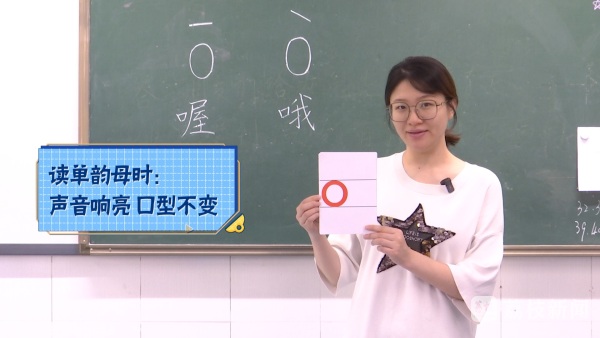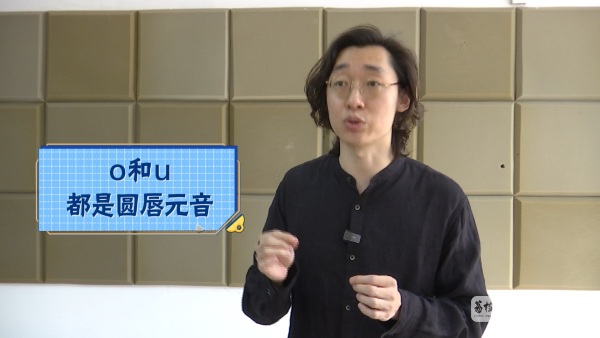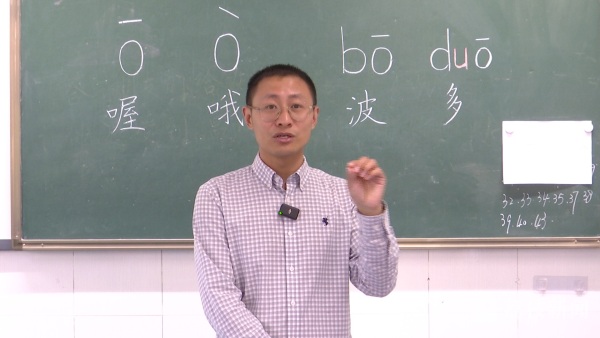Pinyin "O": pronounced "Oh" or "Wo"?
Chinese Pinyin is the key content of Chinese learning in the first grade of primary school. Recently, some parents found that the pronunciation of "O" in "a o e" is different from what their children learned when they were young. At that time, it was clearly "Wo", but now it’s all "Oh". What the hell is going on here? Who is right and who is wrong with the two pronunciations "Wo" and "Oh"? The reporter visited primary school teachers and university professors to conduct multi-party verification.
Primary school teachers teach this.
Kong Wei, an outstanding young teacher in Xuanwu District of Nanjing and a Chinese teacher at Changjiang Road Primary School in Nanjing, said: "‘ o’ It is a single vowel. When reading a single vowel, pay attention to it: the voice is loud and the mouth shape remains the same. Read ‘ o’ When you sound this, your mouth should be round. Some people used to refer to ‘ o’ Misread the sound of ‘ Wo ’ This is not right. ‘ Wo ’ Actually, it is ‘ uo’ Such a combination has experienced the change of mouth shape, from small round mouth to round mouth. When reading a single vowel, you must keep in mind that the mouth shape remains the same. Others will mispronounce it as ‘ Europe ’ (ou), this is also wrong. Because ‘ ou’ It is a vowel, and it has also undergone a change in mouth shape. "

University professors say so.
Why did some primary school teachers pronounce the word "uo" when many post-80s parents were studying? Zhong Sheng, an associate professor at the School of Film and Television of Nanjing University of the Arts and a Putonghua proficiency tester in Jiangsu Province, said: "Because ‘ o’ And ‘ u’ These two vowels are round lips. When reading, the tongue position has a backward contraction process, and the mouth opening is very close. So I guess, before the teacher read ‘ Wo ’ , for ‘ u’ And ‘ o’ There is a degree of discrimination. In terms of scientific name, ‘ u’ Call the vowel with high round lips, ‘ o’ It’s called the second half-high round lip vowel, and the height difference of the tongue position is very small. "

Why is the vowel part like "Wo" when reading "Bo"?
Zhao Changzhu, an outstanding young teacher in Nanjing and a Chinese teacher at Changjiang Road Primary School in Nanjing, said, "We know ‘ o’ When this sound is read as a single vowel, read ‘ Oh ’ . Put it in words, such as ‘ Wave ’ This word, we find, seems a bit strange to read, and the vowel part feels like ‘ Wo ’ Such a sound, that’s because ‘ Wave ’ Pinyin ‘ bo’ Omitted ‘ u’ . Look again ‘ Duo ’ When you spell this word in pinyin, you will find that it is a three-pinyin festival duo, and the middle u sound is written. "

Why do single vowels sometimes sound like compound vowels?
Professor Zhong Sheng said: "When we close the suffix, the vocal cords will slowly relax, and the strength of the mouth and lips will also slowly relax, which will produce such a change in tongue position and lip shape. So sometimes, a single vowel sounds like a compound vowel, or a binary vowel or a ternary vowel. "
(Jiangsu Guangdian Rong Media News Center/edited by Jiang Jian Qiu Yu/Gao Ruoting)